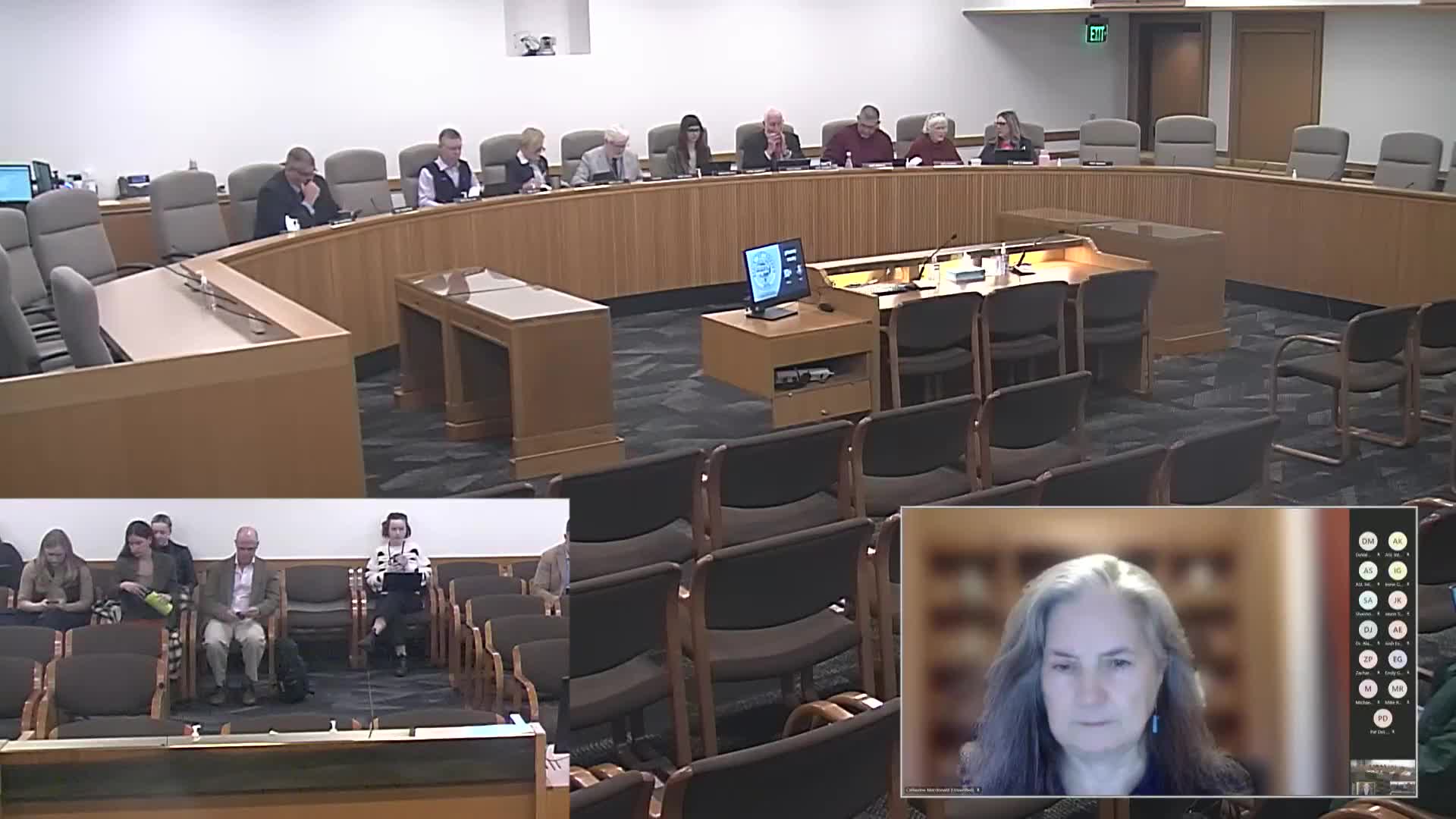House committee hears bill to update Oregon greenhouse-gas targets, set net‑zero by 2050
Get AI-powered insights, summaries, and transcripts
Subscribe
Summary
Representative Mark Gamba told the House Climate, Energy and Environment Committee on March 11 that House Bill 3477 would update Oregon’s greenhouse‑gas reduction goals, set a new 2040 interim target and establish a statutory net‑zero goal no later than 2050.
Representative Mark Gamba, sponsor of House Bill 3477, told the House Climate, Energy and Environment Committee on March 11 that the measure would update Oregon’s statutory greenhouse‑gas reduction goals and set a statutory goal of achieving net‑zero emissions no later than 2050.
The bill would remove the 2010 and 2020 interim goals from statute, add a new 2040 interim target and align the long‑term target with the best available climate science, supporters said. Catherine McDonald, chair of the Oregon Climate Action Commission, told the committee the commission’s technical work shows accelerated policy could meet an earlier interim goal and generate economic and health benefits.
“By being more ambitious, we will provide significant benefits to Oregon’s economy,” McDonald said, summarizing the commission’s Transformational Integrated Greenhouse Gas Emission Reduction (TIGR) analysis.
Why it matters: Supporters said updated targets would align state benchmarks with international science, help track progress and signal investment opportunities. Opponents said the change could reopen or trigger state rules that affect housing, land use and energy‑intensive industries before practical technologies or compliance pathways are in place.
Testimony and evidence
Rep. Mark Gamba (bill sponsor) said the statutory change is intended to reflect current climate science and to provide clearer benchmarks for future policy decisions. Catherine McDonald, chair of the Climate Action Commission (formerly the Global Warming Commission), described the commission’s 2023 TIGR analysis and roadmap, which the commission says shows a pathway to meet a 2035 target earlier and estimates substantial cumulative economic and public‑health benefits and job creation if accelerated policy is implemented.
“Those interim goals are really important to help us better track progress over time,” McDonald said.
Nora Apter, Oregon director for Climate Solutions, said the bill “does not create any new authority” for state agencies and urged the committee to update statute to reflect current science so Oregon can capture economic opportunities tied to clean energy.
Industry and local concerns
Representatives of real‑estate, business and forest and manufacturing interests urged caution. Brock Nation, policy director for Oregon Realtors, opposed the bill as written because of its connections to the Department of Land Conservation and Development’s Climate Friendly and Equitable Communities (CFEC) rules; he warned that the CFEC implementation uses vehicle‑miles‑traveled (VMT) as a proxy and that some city case studies show limited ability to meet modeled VMT reductions.
“While Oregon Realtor supports proposals to address the threats posed by pollution … we can’t support House Bill 34 77 due to its transitive impact on housing production,” Nation said.
Josh Estes of the Association of Western Pulp and Paperworkers and Rocky Dalam of the Northwest Pulp and Paper Association said energy‑intensive, trade‑exposed (EITE) industries lack commercially viable “best available technologies” in some cases and that accelerating targets before compliance pathways are realistic risks job losses.
“Advancing this bill at this time is premature,” Estes said, asking for protections and realistic pathways for EITE sectors.
Questions from lawmakers
Representative Owens pressed for Oregon‑specific, sectoral detail on how the targets would translate into changes in transportation, energy or costs to Oregonians. Chair Lively and other witnesses pointed to ongoing and forthcoming TIGR analysis updates, and McDonald and others said additional Oregon‑based research such as Oregon State University’s climate reports could be provided to the committee.
Representative Osborne said he did not accept the science underpinning the bill and urged attention to active forest management; others on the committee disputed that perspective and urged reliance on the commission’s technical work.
Other testimony
Public witnesses included employees and volunteers who described personal experiences with wildfire smoke, heat events and local economic impacts. Zachary Price of Pac Clean and other clean‑energy proponents urged the committee to include separate targets for greenhouse‑gas removals in statute to spur investment in direct‑air capture and sequestration opportunities in Oregon.
Next steps
The committee closed the public hearing on HB 3477 and moved to later agenda items. No committee action or vote on the bill was recorded in the hearing record.
